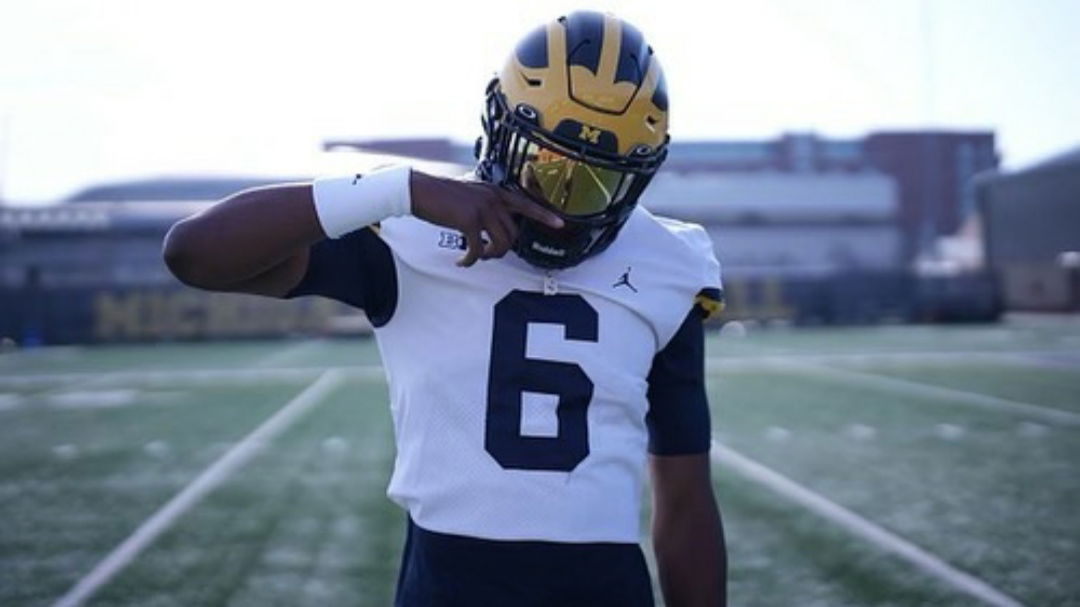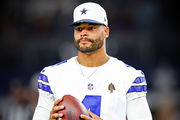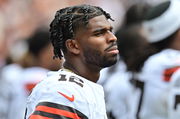
Imago
Credit: Instagram, @19bryce.__

Imago
Credit: Instagram, @19bryce.__
If Bryce Underwood thought Big Ten defenses were tough, wait till he meets his new opponent. The NCAA rulebook. The Division I Board of Directors just hit college football with an emergency bombshell, changing how NIL deals are reported, tracked, and punished. The move, announced this week, tightens the leash on NIL transparency like never before. From now on, every Division I athlete has five business days to report any NIL contract worth $600 or more to NIL Go, the NCAA’s new clearinghouse. If players fail to abide by the rule, it could sideline a multimillion-dollar athlete.
Watch What’s Trending Now!
Attorney Mitt Winter broke the story wide open on X on October 29, posting official screenshots of the NCAA’s emergency order. “The NCAA has adopted emergency legislation specifying DI athletes can lose eligibility if NIL deals aren’t reported. If a school discovers an athlete may not have reported a deal it has 2 days to review & report to the CSC. If a deal isn’t then reported, athlete is ineligible.”
The NCAA has adopted emergency legislation specifying DI athletes can lose eligibility if NIL deals aren’t reported.
If a school discovers an athlete may not have reported a deal it has 2 days to review & report to the CSC.
If a deal isn’t then reported, athlete is ineligible. pic.twitter.com/uhILHBCZHQ
— Mit Winter (@WinterSportsLaw) October 29, 2025
ADVERTISEMENT
Under the new rule, if a player misses the reporting window, the College Sports Commission (CSC) can instantly pull the plug on their eligibility, banning them from both practice and competition. And if a school learns of an unreported NIL deal, it’s got just two business days to confirm and report it, or the player’s eligibility gets yanked until that deal hits NIL Go.
The rule takes immediate effect. That means schools and players who already slipped up have until tomorrow to clean up their NIL skeletons before the CSC starts dropping hammers as soon as Friday. Every autograph, every brand post, every “collab” now goes through NIL Go’s watchful eyes. This emergency move reflects growing NCAA paranoia over NIL Go’s rollout and its transparency issues.
ADVERTISEMENT
The transparency crackdown
Schools now carry the burden of policing their own players or risk facing the fallout. Smaller programs without established NIL infrastructure could feel the crunch, racing against deadlines with fewer hands on deck. And yes, this includes the heavy hitters. Bryce Underwood, whose NIL valuation sits near $3 million, will have to log every deal like clockwork. So will fellow megastars Arch Manning ($4.7M) and Carson Beck ($4.3M). The new rule doesn’t care about clout, only compliance.
What’s more, NIL Go’s inner workings remain shrouded in mystery. With Deloitte running the backend, many expect the system to rely on AI-driven algorithms to determine “fair market value.” That raises new concerns about who decides what a player’s worth really is, and could a bot bench a star for a data glitch? As of now, the NCAA’s trying to clean up the wild west it created. But in doing so, it may have unleashed a different kind of chaos.
ADVERTISEMENT
For players like Bryce Underwood and every aspiring star, one thing’s certain. Correct compliance is needed to ensure the continuation of their college football journey this season.
Top Stories
PGA Tour Pro Loses His Cool After Being Denied Entry Into WM Phoenix Open Field

NFL Makes Final Decision on ICE Enforcement at Super Bowl LX Amid Bad Bunny’s Grammy Speech

U.S. Senator Announces Bad News For NFL Fans After Donald Trump’s Ruling on ESPN’s Billion-Dollar Takeover

Cowboys’ Major QB Signing Confirmed Amid $31M Dak Prescott News

Todd Monken Announces Bad News for Shedeur Sanders Amid Browns QB’s Controversial Pro Bowl Decision

Patrick Cantlay & Scottie Scheffler Disapprove of Controversial Change Happening to PGA Tour Courses

ADVERTISEMENT
ADVERTISEMENT
ADVERTISEMENT
.png)
.png)
.png)



